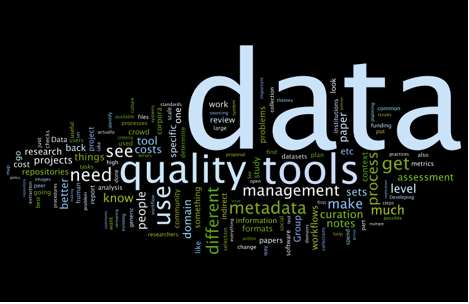News
Four Types of Data Quality Tools
Data quality tools are software applications that help you improve the quality of data. These programs analyze a data set and highlight gaps and errors. These tools are commonly used by data scientists, data analysts, and other Operations personnel. This article will look at four types of tools for data quality. Each one has its own uses and benefits.
Analyzing long strings
Analyzing long strings is an important aspect of data quality management. Data quality tools can help identify recurring patterns, identify blank values, and eliminate errors. They can also identify important components of long strings and validate them against a library of accurate values. Data quality tools can also help transform long strings into other formats or replace invalid values.
Many business leaders entertain the idea of digitizing their processes, but few actually do it. While the process of digitizing a business is exciting, it can also reveal a number of challenges. By addressing these challenges, you can improve your team’s productivity and performance, and deliver consistent business results.
Machine learning-enabled
High-quality data can help focus marketing strategies and campaigns. Erroneous data can also cause missed opportunities. ML-based data quality tools help businesses avoid such problems. Traditionally, data quality tools used predefined criteria to detect anomalies. However, today’s complex datasets have many permutations, and these rules-based systems are not scalable. With machine learning models, data quality can be achieved automatically and at scale.
While ML-enabled data quality tools are still a relatively new technology, the potential of such technologies to improve data quality is enormous. The current intake level of ML-enabled tools is quite low, but many leading data quality tools are exploring the territory. This could change the game for businesses.
For example, ML-enabled tools can identify forged transactions. This is especially useful for financial firms. Inaccurate data can affect a company’s financial health. By detecting fraudulent transactions, machine learning algorithms can warn the business to take action before a scenario gets out of hand. Some estimates suggest that card issuers and banks could save $12 billion a year with these tools.
Scalability
Scalability is a key characteristic of software systems. It allows a system to be expanded without having to change its design. This feature saves time and money, as systems that are scalable do not need to be rebuilt if the workload increases. Workload can refer to the number of concurrent users, the number of transactions processed, or other factors. Scalability determines the system’s ability to expand, grow, or change with its user base.
Some data quality tools are flexible enough to scale to meet the changing needs of a business. For example, they can support a wide range of data sources, including big data and cloud-based services. Their capabilities also enable them to be deployed in real-time, without the need for pre-formatting data. Furthermore, they can scale to an unlimited number of systems and applications, and allow a business to manage all of their data quality services from a single location.
In addition to providing a more personalized customer experience, Data quality toolsbenefit all departments. For example, product teams can iterate faster and make better decisions based on accurate data. Analysts can analyze the data more effectively, and marketing teams can personalize their messaging and improve their advertising efforts. Companies that invest in data quality tools have a clear data quality strategy that includes alignment, validation, and enforcement.
Cost
The cost of data quality tools varies according to the features they offer and the complexity of their implementation. Developers and data scientists are often the ones who use these tools to ensure data quality, but business users can also benefit from them. Most data quality tools don’t provide transparent pricing, but they may vary depending on the number of data sources used and features included. In general, businesses should expect to pay for their data quality tools through monthly subscriptions.
Choosing the right data quality tool for your business is an important decision. It should address your needs and scale with your company. Ideally, you should be able to use it in conjunction with other IT tools and not have to change your existing tech stack. Moreover, you should make sure that the tool you choose is user-friendly and accomplishes the tasks you need it to. Lastly, make sure that it comes with live support.
The cost of poor data quality is substantial. According to research by IBM and Gartner, a company loses up to $15 million a year in revenue. Poor data quality also damages a company’s reputation.

















